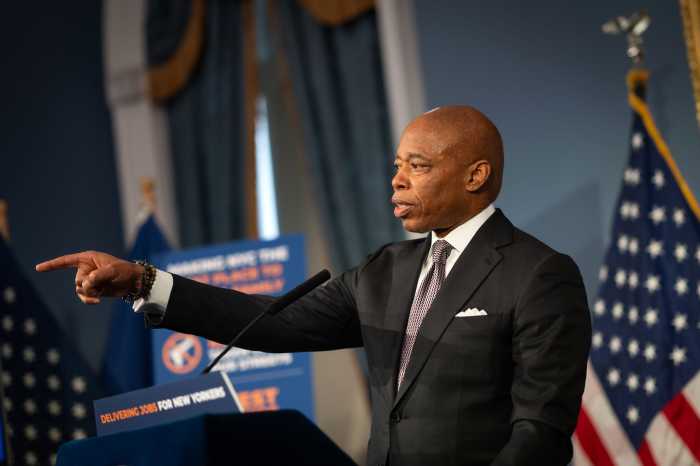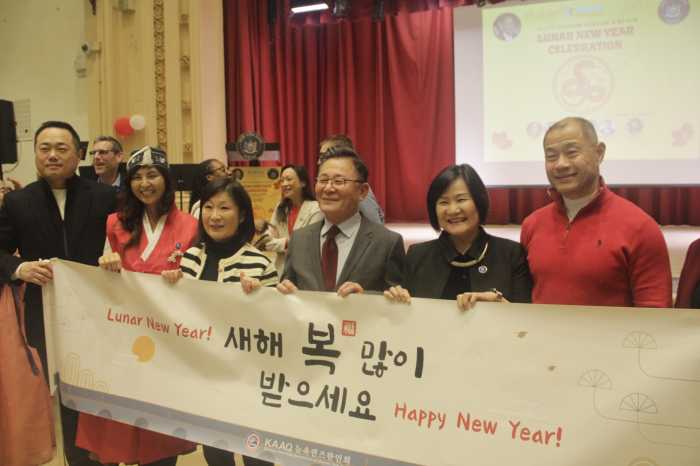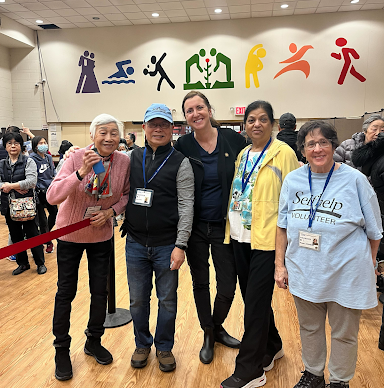State Sen. John Liu joined advocates, educators, New York State public school students, and fellow elected officials at the New York State Capitol Tuesday to call for the inclusion of an Asian American, Native Hawaiian, and Pacific Islander (AANHPI) curriculum in the state’s public schools.
Liu, along with Manhattan Assembly Member Grace Lee, have co-sponsored the AANHPI curriculum bill in the State Legislature, which calls for the development of an AANHPI curriculum and an assessment of existing implementation efforts and resource gaps.
Liu and Lee joined members of the Representing and Empowering Asian American, Native Hawaiian, and Pacific Islander (AANHPI) Community History (REACH) coalition at the State Capitol on Tuesday to mark the coalition’s third annual advocacy day.
Formed in 2023, REACH aims to fight for inclusive AANHPI education measures in New York and includes more than 150 students, parents, educators and advocates, as well as more than 60 community-based organizations fighting for a more representative and inclusive telling of history in New York State’s public schools.
Tuesday’s rally featured representatives from several community-based organizations, including the National Federation of Filipino American Associations, the New York AAPI Commission, We Belong Here NY, the South Asian Legal Defense Fund and Korean American Civic Empowerment among more than a dozen others.
Liu said Tuesday that the struggles of Asian-Americans have been “marginalized or whitewashed” from New York State classrooms “for too long”. He added that educating students about Asian-American history would represent a step toward addressing anti-Asian hate and discrimination.
“Public schools should teach Asian American history because it’s American history and so that we might finally begin to eradicate the anti-Asian hate that has become far too prevalent in recent years,” Liu said.
Lee, meanwhile, said the inclusion of Asian-American history in New York public school curriculums would be a vital step toward fostering greater appreciation and inclusivity among students.
“By bringing to light the contributions, challenges, and resilience of AANHPI communities in the United States, we offer students a more complete and accurate portrayal of our nation’s history while inspiring them to build a more just and equitable future,” Lee said in a statement.
Several members of the REACH Coalition steering committee also spoke at Tuesday’s rally, including Shreya Sunderram, who said that history curriculums could either make Asian-American students feel invisible or help empower young students.
Sunderram, who also serves as K-12 Director for the Localized History Project of the Asian American /Asian Research Institute, said the AANPHI Curriculum Bill is critical to making New York State’s public schools more inclusive.
“It is my hope that every young person sees themselves represented in history classrooms, and that our classrooms become sites of liberatory memory work where we build connection, community, and belonging,” Sunderram said.
Kenny Nguyen, Administrative Chair of the REACH Coalition and Advocacy Manager of Stop AAPI Hate, said AAPI communities have been facing an “alarming” level of hate since the Covid-19 pandemic, adding that it is vital to invest in long-term solutions, including education.
“Stop AAPI Hate’s research shows that our communities believe teaching AANHPI history is one of the most effective ways to combat hate,” Nguyen said.
Richard In, Executive Director of Korean American Civic Empowerment and a member of the REACH steering committee, said AANHPI history covers the contributions and histories of individuals and movements that helped shape the United States.
“From fighting for American Independence to rallying support for women’s right to vote, and even serving as American diplomats and leaders of this nation, the AANHPI community has been here the entire time and have contributed to this country for centuries,” In said on Tuesday.



































